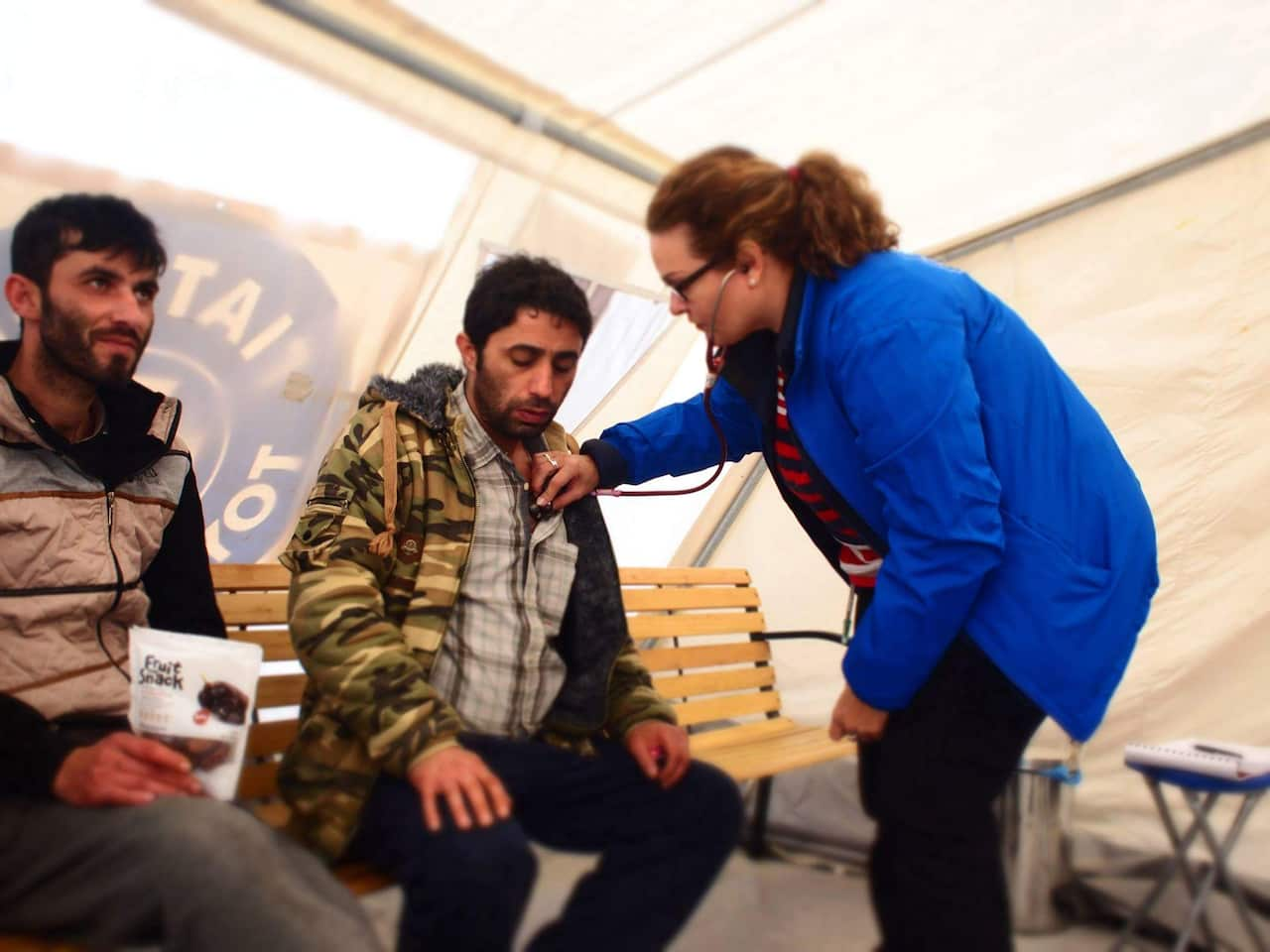I am often asked have I ever been scared for my life? Have I thought I was going to die? The answer is yes. PTSD is a word that many first responders use and it is now true for aid workers.
I’m not sure when my passion for helping people started, but one thing I do know is I was helping people even when I was a child. It was just in my nature. As an adult, when I became a paramedic and emergency nurse, the sense of giving extended to the wider community. I would spend countless hours and weekends volunteering in an ambulance, while my friends were out enjoying themselves.
When I volunteer as a nurse in the wake of a disaster, the call comes in and I stop whatever I’m doing. I focus on getting that duffle bag with my gear ready and ensuring I’m self-sufficient. I’ve put my hand up to provide medical aid on many occasions: the Nepal earthquake in 2015, the Greek refugee crisis the same year, Typhoon Haiyan in the Philippines during 2013, the Bali bombings, and most recently, I travelled to Mosul in Iraq while it was an Islamic State stronghold.

Over my career, threatening situations have become normalised. When I was a remote nurse in the Anangu Pitjantjatjara Yankunytjatjara (APY) lands in 2009, a patient threw an axe at me after refusing an injection. In Nepal, I sent a text message to my mum saying goodbye when a major aftershock hit. In Lesvos, thousands of refugees arriving each day meant boat accidents, downings, people freezing in the winter cold. You learn to focus on the job at hand.
After I returned to Australia from Nepal, I recall hearing with disbelief about Johnny Depp and his dogs on the radio. The earthquake had become old news. I met my mother for a coffee and her big problem for the week was which lounge to choose for her new home, and again, disbelief.
The hard thing about coming back is feeling isolated from others. I would become frustrated and angry, struggling to hear every day first world problems. It’s difficult relating to people who think they have issues, those that are legitimate for them, but compared to people who’ve lost their families, seem insignificant. Coming home, no one around you understands what you have seen.
About one month after Nepal, I would feel earth tremors and would suddenly reach out to hold onto something, startled and jumpy. When I returned from Greece, children jumping in a pool at a friend’s BBQ made me want to instinctively pull them out of the water, thinking they were drowning. That’s when I realised my work had affected me.
I knew I would need to speak to a psychologist or counsellor. I would lie awake at night thinking about what I had experienced. I thought, if I told my friends about the experiences they probably wouldn’t believe it. I thought people would think I had made them up.
One thing I have learnt from aid work is that you really can make a difference to people’s lives. Caring for people regardless of their ethnic or religious backgrounds has allowed me to grow as a person. Volunteering my time and skills, while costly both financially and emotionally, has been so personally rewarding. Nursing isn’t just a job, it is a way of life.
Insight is Australia's leading forum for debate and powerful first-person stories offering a unique perspective on the way we live. Read more about Insight
Have a story or comment? Contact Us


